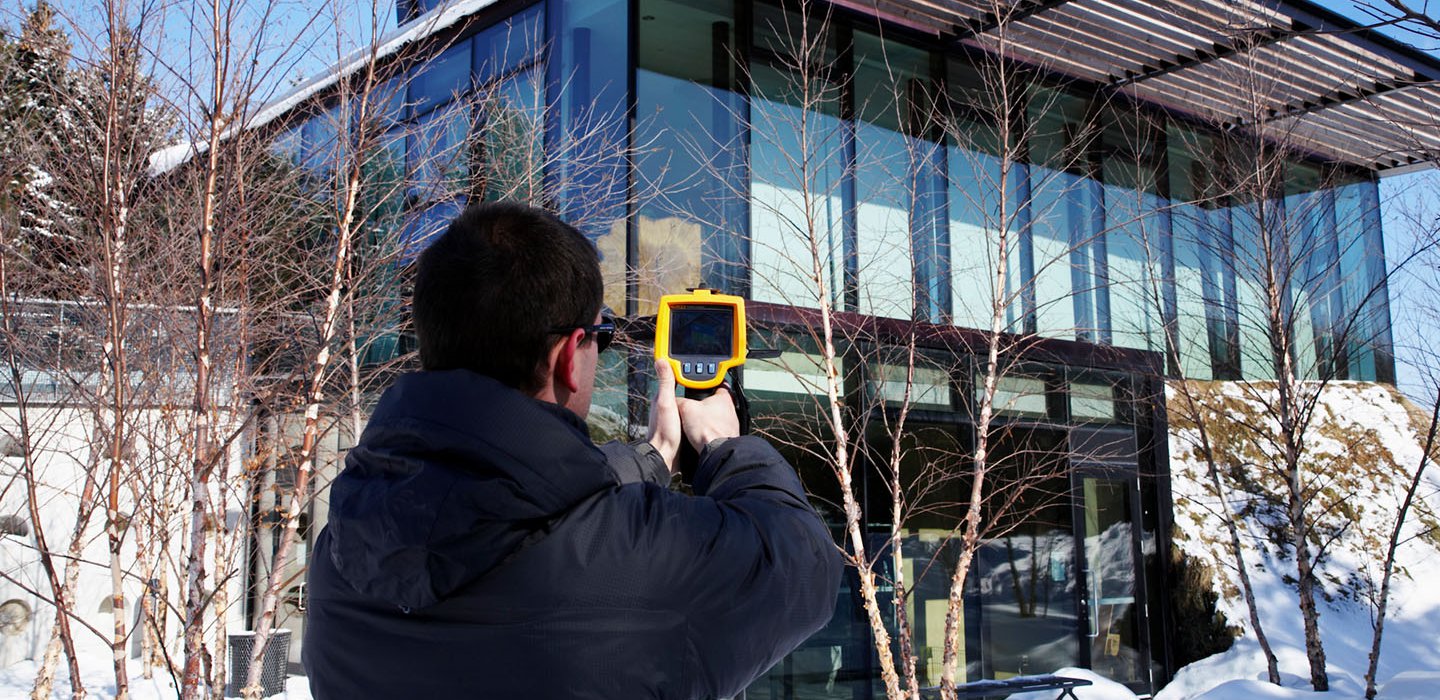Applied research in Sustainable Architecture and Energy Efficient Construction involves projects that seek to minimize the negative environmental impact of buildings by efficiency and moderation in the use of materials, energy, and development space, both in construction processes and resulting infrastructure. Partners collaborate with the faculty and students of programs like Architectural Technology, Computer Engineering, Project Management, and Sustainable Energy and Building Technology to work on these projects, creating more sustainable architecture. Collaborators can work on sustainability projects at Humber in facilities such as the Sustainable Energy Labs, Energy Auditing Lab, Building Automation Systems Lab, and the Renewable Energy Lab.
Sustainable Architecture
Off-Grid Organic Food Shed Capstone Project with the City of Brampton
Phil Fung / Faculty of Applied Sciences & Technology
Keeping his students constantly involved through capstone projects is a priority for Phil Fung, Professor, Faculty of Applied Sciences & Technology. He stresses that hands-on experiential learning and exposure to community and industry needs is the only way students can truly learn. An example of Phil’s interaction with students is the Off-Grid Organic Food Shed project with the City of Brampton. Phil learned of the Brampton Backyard garden initiative through one of his students and decided to get involved. As a result, Phil conducted an Insight seminar about the Food Shed, and Humber’s students were involved in a Capstone project.
The Off-Grid Organic Food Shed is provided by Nature Harmony and is a zero-energy, zero-waste, carbon negative, greenhouse structure that will grow produce from the food shed and be donated to Regeneration Outreach Community to feed families in Brampton, as part of the 2021 Backyard Garden Program. This innovative technology contains its own ecosystem, using a combination of automated soil, hydroponics, and aquaponics systems to grow edible organic fruits and vegetables and even edible fish.
